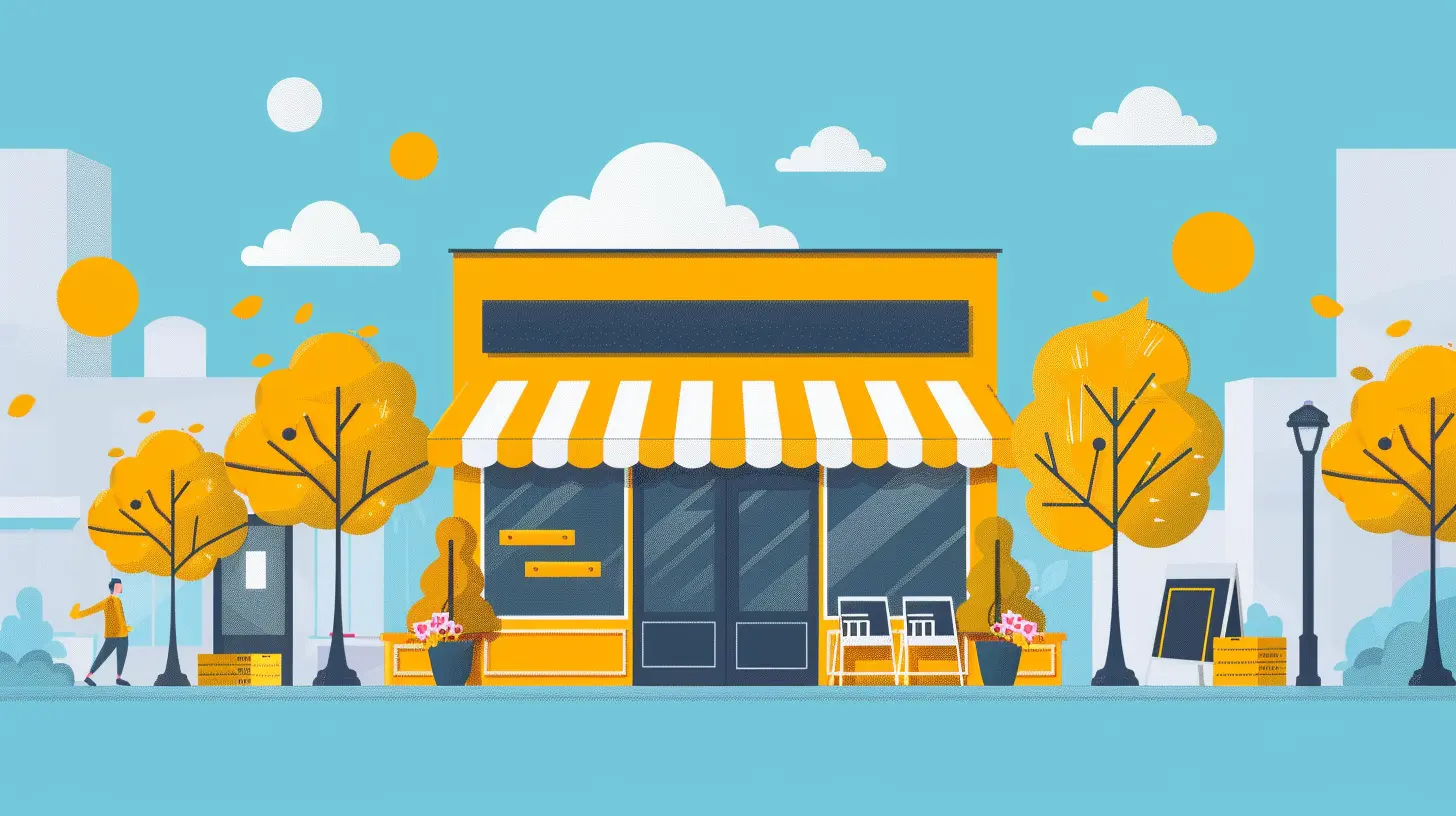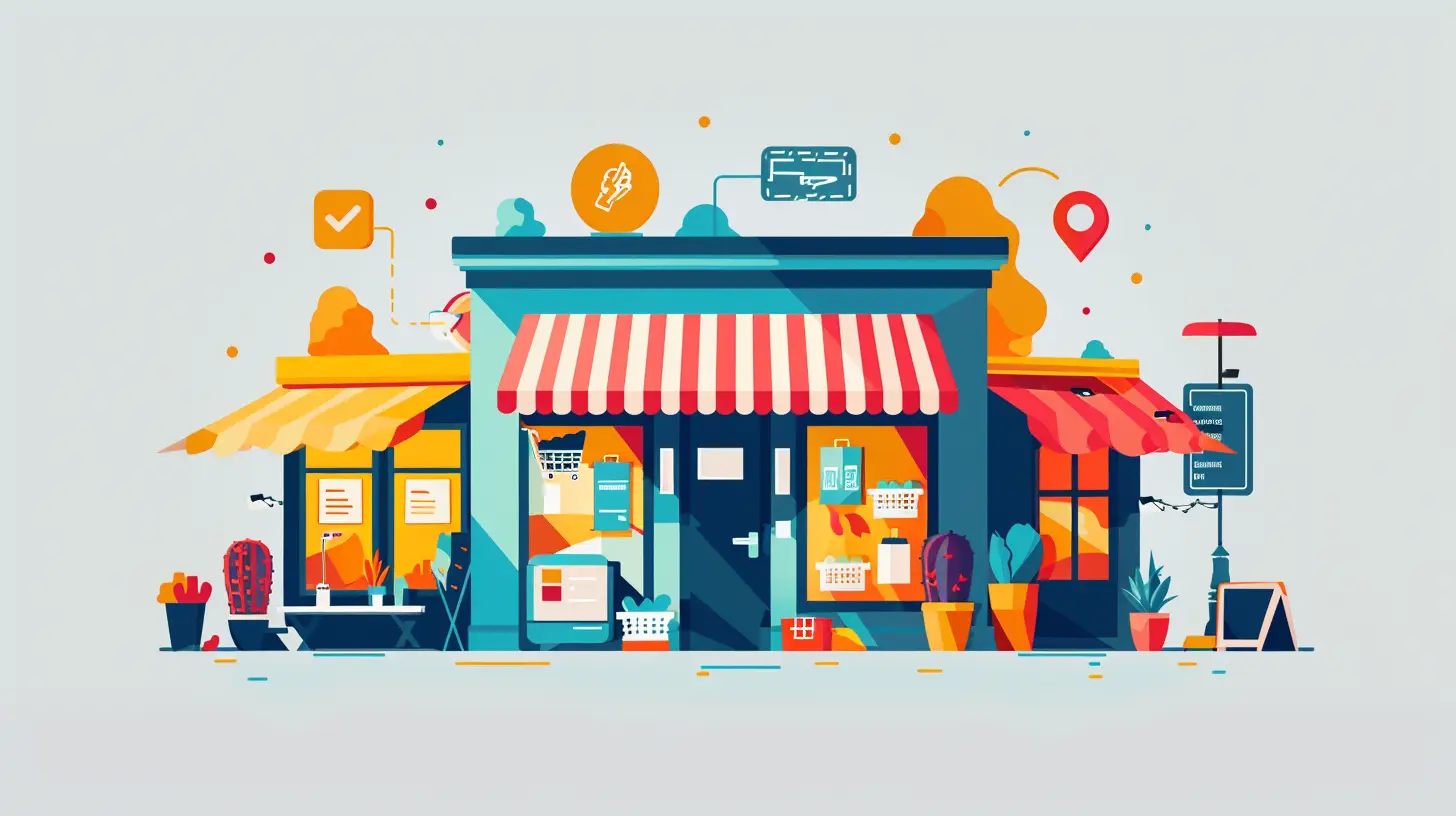Franchising: Is It the Right Business Model for Your Brand?
23 August 2025
Let’s be honest—scaling a business can feel like walking a tightrope. You want to grow fast, but not so fast that you lose control. You want to reach new markets, but without burning through your entire cash reserve. So, if you’ve found yourself wondering whether franchising might be the golden ticket to expansion, you’re not alone. For many brands, franchising seems like a dream come true. But here’s the big question:
Is franchising really the right business model for your brand?
Let’s dig into what franchising is, the nitty-gritty of how it works, the pros and cons, and how you can figure out if it’s the best fit for your vision.
What Is Franchising, Anyway?
Alright, let’s strip it down to basics.Franchising is a business model where you, the brand owner (aka the franchisor), license your business’s name, operations, and products or services to someone else (the franchisee). In return, they pay you fees and royalties.
Think of it as business cloning—with your permission. You're essentially helping others run your business in different locations under your brand’s umbrella. The franchisee takes care of the day-to-day grind, but they do it your way.
Popular household names like McDonald's, Subway, and Anytime Fitness didn’t get to global status by opening every single outlet themselves. They franchised.
The Core Components of a Franchise
To make sure we’re all on the same page, let’s break down what typically makes a franchise:- Franchise Fee: One-time payment for joining the system.
- Royalty Payments: Ongoing percentage of sales paid to the franchisor.
- Training & Support: Initial training and sometimes continuous coaching.
- Operations Manual: Think of this as your bible for running the business.
- Branding: Everything from the logo to the customer experience stays uniform.
- Territorial Rights: Franchisees often get exclusive rights to operate in a specific area.
This setup allows franchisees to plug into a proven system, while franchisors get to grow without managing every location directly.
Why Do Brands Choose to Franchise?
You might be thinking, “Why wouldn’t I just open more locations myself?” Fair question. Let’s talk benefits.1. Faster Growth with Lower Capital
Opening a new location? That’s expensive. Between rent, inventory, employees, and marketing—it adds up fast. Franchising lets you grow your brand using other people’s money. Yep, franchisees foot the bill to open stores under your name.2. Motivated Operators
Nobody will hustle like a business owner. Rather than paying a manager to run your store, your franchisees are all-in. They’ve got skin in the game. That kind of drive is hard to replicate with hired managers.3. Local Expertise
You might know your region like the back of your hand, but what about three towns over? Or three states over? Local franchisees bring insider knowledge, connections, and cultural familiarity to the table.4. Recurring Revenue
Franchisors typically collect royalties based on a percentage of the franchisee’s revenue. That means if your franchisees do well, you do well—without lifting a finger to serve customers directly.
The Flip Side: Why Franchising Isn’t a Magic Bullet
Now, let’s not sugarcoat things. Franchising can be powerful, but it’s not always sunshine and rainbows.1. Loss of Control
You’re no longer calling the shots at every storefront. That can be a real pain if franchisees don’t follow your brand’s standards. One bad apple can ruin the bunch—and your reputation.2. Complex Legal Landscape
Franchise law isn’t just another day at the office. You’ll need airtight Franchise Disclosure Documents (FDDs), solid contracts, and strict compliance with regulations. This means lawyers. And lawyers mean $$$.3. Brand Consistency Challenges
Consistency is king in franchising. People expect the same Big Mac in New York as they do in Tokyo. That’s hard to maintain across dozens (or hundreds) of independently-run locations.4. Shared Profits
Instead of keeping 100% of the profits from each location, you’ll be earning royalties—often 5-10% of gross sales. You’re trading full ownership for scale.Is Your Business Even Franchise-Ready?
Here’s where you need to get real with yourself. Not every business can—or should—franchise. Here are some questions to ask:1. Is Your Concept Proven?
Franchisees want a model they can replicate—so they need proof it works. Ideally, you’ve got several successful company-owned locations already.2. Can Your Business Be Systemized?
If your business runs on gut instincts and daily improvisation, franchising will eat you alive. You need processes, guides, training, and structure that’s easy for others to implement.3. Is There Market Demand?
Just because your bagel shop is killing it in your neighborhood doesn’t mean it’ll work in another city. Do some market research to validate demand elsewhere.4. Will Others Be Willing to Invest?
Would someone write a $100k check to open your business? If the answer isn’t a hard “yes,” you may need to fine-tune your value proposition before franchising.Franchising vs. Other Expansion Methods
Let’s say you’re dead set on expanding. Franchising is one option, but how does it stack up against others?| Expansion Model | Pros | Cons |
|---------------------|-----------------------------------------------|----------------------------------------------|
| Franchising | Low capital, faster growth, motivated owners | Less control, legal complexity |
| Company-Owned Units | Full control, 100% profit | High capital requirements, slower expansion |
| Licensing | Easy to implement, faster to scale | Less brand control, limited training/support |
| Joint Ventures | Shared risk and resources | Shared profits and potential conflicts |
Each option has its place—it all depends on your goals, resources, and risk tolerance.
Real Talk: When Franchising Makes Sense
Let’s paint a picture. Franchising might be the right move if:- You have a proven and scalable business model
- You’re in a high-demand industry (food, fitness, childcare, home services)
- You’re ready to invest in legal, training, and support infrastructure
- You’re cool with sharing control (and profits) for the sake of scale
But if you’re still trying to figure out your branding, operations, or customer service protocols? Hit the brakes. Franchising will only magnify whatever cracks are already in your foundation.
How to Start Franchising (Without Losing Your Mind)
Okay, you’ve done the soul-searching and decided franchising might be your path. What now?Step 1: Tighten Up Your Core Business
Before thinking about expansion, make sure your original business is solid. Do people love it? Is it profitable? Is the branding on point?Step 2: Document Everything
Operations manuals. Training guides. Employee handbooks. You’re building a plug-and-play business—so your franchisees don’t reinvent the wheel.Step 3: Consult Franchise Experts
This is where you stop Googling and start calling lawyers. You’ll need an FDD, a franchise agreement, and compliance with Federal Trade Commission (FTC) rules.Step 4: Build a Franchisee Onboarding Program
Your new partners will need a crash course in running your business. Set them up for success with comprehensive onboarding and continued support.Step 5: Market Your Franchise Opportunity
Once your system is ready, it’s time to attract franchisees. Use your website, franchise networks, and even social media. Make it clear why your opportunity is worth their investment.Red Flags to Watch Out For
Franchising comes with a few landmines. Avoid these common mistakes:- Growing Too Fast: More locations = more problems if your systems aren’t airtight.
- Underestimating Costs: Legal documents, marketing, and training aren’t cheap.
- Choosing the Wrong Franchisees: One bad franchisee can wreck your brand image.
- Ignoring Ongoing Support: You’re not off the hook once they sign the dotted line.
Think of franchisees as business partners, not just customers. Your success is tied to theirs.
Conclusion: So… Is Franchising Right for You?
Let’s wrap it up with some real talk. Franchising isn’t a one-size-fits-all solution. It’s a long game—kind of like planting a tree. You water it, you nurture it, and eventually, it bears fruit. But only if you plant the right seed in the right soil.Ask yourself:
- Are you ready to share your brand with others?
- Do you have systems in place that can be replicated?
- Can you handle the legal and operational load that comes with franchising?
If you answered yes to most of those, franchising might be your ticket to building a nationwide (or global) brand. Just take it step-by-step, stay laser-focused on quality, and never forget: your brand is only as strong as your weakest franchise.
And if franchising isn’t right for now? That’s totally okay. You’ve got other ways to grow. But when the time is right, and you’re ready to scale responsibly—franchising can be one heck of a powerful tool.
all images in this post were generated using AI tools
Category:
Business ModelsAuthor:

Baylor McFarlin
Discussion
rate this article
1 comments
Zephyris Jenkins
Great insights! Franchising can truly empower brands to grow, but careful consideration is essential for success.
September 12, 2025 at 12:41 PM

Baylor McFarlin
Thank you! Absolutely, careful planning and strategic thinking are key to successful franchising.


